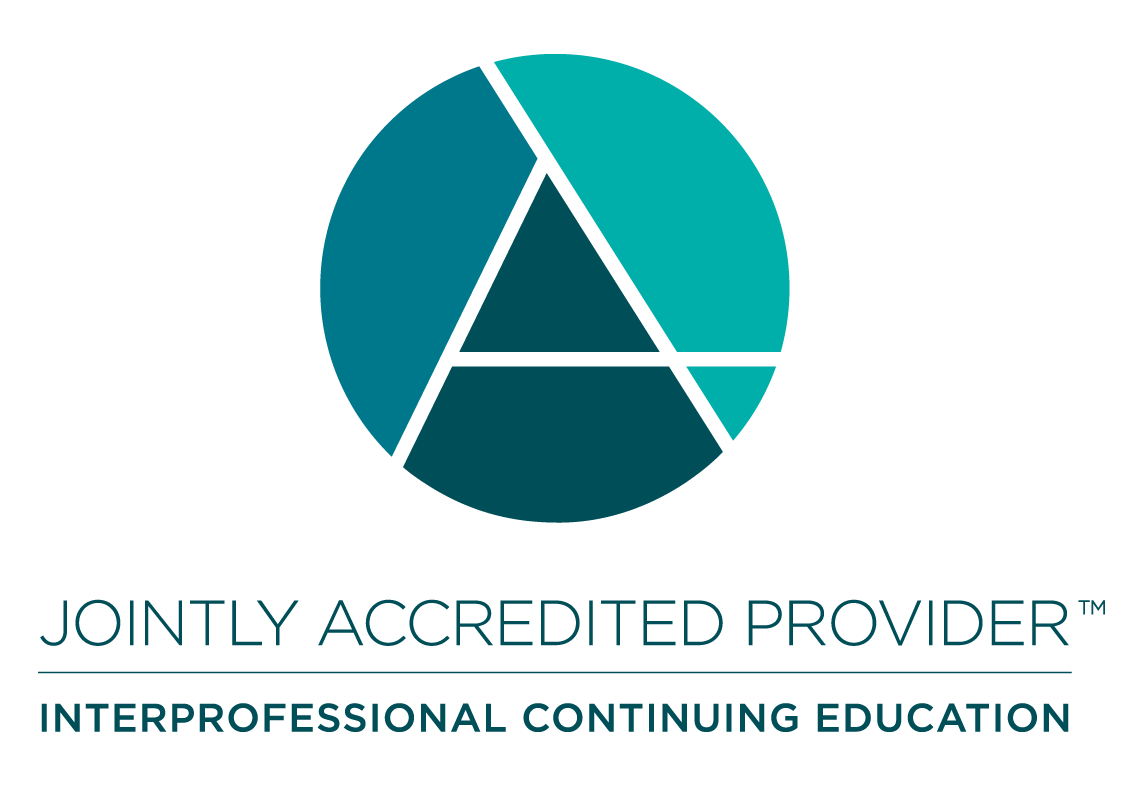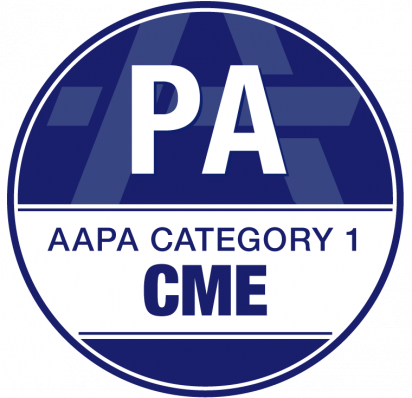
PCSS MOUD Online Case-based Learning Collaboratives Session 3: OUD in Adolescents and Young Adults
-
Register
- Non-Member - Free!
- Regular Member - Free!
- Retired - Free!
- Early Career Physician - Free!
- Resident - Free!
- Student - Free!
- Associate - Free!
- ASAM Staff - Free!
- International Member - Free!
- Emeritus Member - Free!
- Provisional Member - Free!
- Fellow Member - Free!
- Honorary Member - Free!
- CRT Member - Free!
PCSS MOUD Online Case-based Learning Collaboratives
Session 3: OUD in Adolescents and Young Adults
Recorded: Wednesday, May 29, 2024
On-Demand Session
Overview
Join our 4-session online case-based learning collaborative series focused on treating opioid use disorder. Delve into best practices on treating OUD in adolescents and young adults and explore real-world cases provided by addiction experts, applying knowledge to practical situations. Each session is presented live online and spans 1.5 hours.
Designed for healthcare team members new to treating patients with opioid use disorder, the series aims to offer additional insights, knowledge, and confidence.
These 1.5-hour sessions include:
- One 40-minute didactic presentation on a featured OUD topic followed by Q&A
- A 15-minute real-world case scenario and discussion led by addiction experts
- Learner case discussion and Q&A
- Up to 1.5 credits per session
The target audience for this introductory level activity includes physicians, PAs, nurses, nurse practitioners, social workers, psychologists, counselors, addiction educators, and other clinicians part of the care team.
This activity addresses the following ACGME/IOM/IPCE Competencies: Patient-centered Care and Procedural Skills, Medical Knowledge, Practice-Based Learning and Improvement, Interpersonal and Communications Skills, Systems-based Practices, Work in Interdisciplinary Teams, Employ Evidence-based Practice, Apply Quality Improvement, Professionalism, Values / Ethics for Interprofessional Practice, Roles / Responsibilities, Interprofessional Communication, Teams and Teamwork.
Learning Objectives
Upon completion, learners will be able to:
- Describe the epidemiology of opioid use and overdose in adolescents and young adults.
- List medications to treat opioid use disorder in youth and understand indications for their use.
- Examine harm reduction strategies to reduce opioid-related harms in young people.
Overview Acknowledgement:
Funding for this initiative was made possible by cooperative agreement number 1H79TI081968 from SAMHSA. The views expressed in written conference materials or publications and by speakers and moderators do not necessarily reflect the official policies of the Department of Health and Human Services; nor does mention of trade names, commercial practices, or organizations imply endorsement by the U.S. Government.

Registration Rates
| ASAM Learner Type | Rate |
| ASAM Member | $0 |
| Non-Member | $0 |
| Associate Member | $0 |
| Resident Member* | $0 |
| Student Member* | $0 |
*Residents, Fellows-in-training, Interns, and Students must join ASAM to receive a discounted registration rate. Click here to become an ASAM member. National and Chapter membership dues apply. There is no charge for Students to become a Member, but verification of student status is required.
Membership Question? Call ASAM at 1.301.656.3920, email us, or view the ASAM website for more information.
Refunds & Cancellations
All ASAM e-Learning Center refund requests must be made in writing to Education@ASAM.org within 90 days of purchase. Those requesting refunds for courses that are in progress will receive partial refunds or e-Learning Center credit. Automatic full refunds will be made for any course with a live-course component that has been cancelled.
Open Registration: 05/29/2024 - 04/29/2027
Close Access Date: 06/29/2027
Instructions
- Click on the Contents tab to begin this activity.
- Click Complete Post Test to answer multiple choice questions. Participants will have 10 attempts to pass and must answer 5 out of 6 questions correctly.
- Click Complete Evaluation to provide valuable activity feedback. Scroll down on all questions as there may be answer options that expand past the size of the window.
- Click the button Claim Medical Credits in the box titled Claim Credits & Certificate. Choose the type of credit and click submit. Click the button View/Print Certificate to save or print your certificate. You can view/print your certificate at any time by visiting the ASAM e-Learning Center, clicking Dashboard, and clicking Transcript/Achievements.
Need Assistance?
For assistance logging in, accessing activities, claiming credit, or for other questions or concerns, please check the FAQ page or e-mail Education@ASAM.org
ASAM is proud to offer eSSENTIAL Accessibility to ensure our website is accessible and functional for all our learners while providing free assistive technology for people with the widest possible range of abilities.
J. Deanna Wilson
MD, MPH
Dr. Wilson is an Assistant Professor of Family Medicine andCommunity Health at the University of Pennsylvania. Shereceived her MD from Yale University School of Medicine and trained in internalmedicine and pediatrics at the Johns Hopkins University School of Medicine. Shecompleted additional subspecialty training in both adolescent and addictionmedicine also at Johns Hopkins. Dr. Wilson's research interests include reducingsubstance use-related health disparities and building equity, with an emphasis oninnovative strategies to treat opioid use disorders in adolescent and adultpopulations. Her work includes integrating harm reduction into primary caresettings, developing low threshold models of care to improve engagement andretention of vulnerable populations, and improving engagement and retention ofadolescents and young adults in OUD treatment.
No relevant financial disclosures
Kathryn M. Basques
MSW, MSN, APRN, PMHNP-BC
Kathryn M. Basques is a psychiatric nurse practitioner specializing in Addiction Medicine and Psychiatry. After completing her education at Yale School of Nursing, she started her career at Yale-New Haven Hospital on the first pro-active psychiatric consult service. From 2015-2020, she worked at Rush University Medical Center as the Co-Director of the Substance Use Intervention Team (SUIT) and dedicated herself to promoting the early identification of substance use disorders, implementation of an SBIRT model of care in the inpatient units, and improving the management of opioid and alcohol withdrawal syndromes. Since moving to Providence, RI, in 2021, Kathryn was first within the Lifespan Hospital System, continuing to work in a combined inpatient and outpatient, co-occurring clinical role. She is currently the Lead Psychiatry Provider for CODAC, an OTP and comprehensive substance use treatment program with locations throughout Rhode Island. Her areas of interest remain advocating for harm reduction policies in the treatment setting, motivational interviewing, and management of co-occurring syndromes.
No relevant financial disclosures.
Accreditation & Credit Designation Statements
Joint Accreditation Statement

In support of improving patient care, the American Society of Addiction Medicine is jointly accredited by the Accreditation Council for Continuing Medical Education (ACCME), the Accreditation Council for Pharmacy Education (ACPE), and the American Nurses Credentialing Center (ANCC), to provide continuing education for the healthcare team.
Physicians
The American Society of Addiction Medicine designates this enduring material for a maximum of 1.5 AMA PRA Category 1 Credits™. Physicians should claim only the credit commensurate with the extent of their participation in the activity.
Nurses
This activity awards 1.5 Nursing contact hours.
Pharmacy
This activity will offer 1.5 pharmacy contact hours (1.5 CEUs). Pharmacists will be asked to provide identifying information (e-Profile ID and DOB in MMDD format) in order to receive credit and allow reporting to CPE Monitor. (UAN:JA0000141-0000-24-021-L99 )

PAs
ASAM has been authorized by the American Academy of PAs (AAPA) to award AAPA Category 1.5 CME credit for activities planned in accordance with AAPA CME Criteria. This activity is designated for 1.5 AAPA Category 1.5 CME credits. Approval is valid until 05/29/2027. PAs should only claim credit commensurate with the extent of their participation.
Social Workers
As a Jointly Accredited Organization, ASAM is approved to offer social work continuing education by the Association of Social Work Boards (ASWB) Approved Continuing Education (ACE) program. Organizations, not individual courses, are approved under this program. Regulatory boards are the final authority on courses accepted for continuing education credit. Social workers completing this course receive 1.5 general continuing education credits.
IPCE Credit
This activity was planned by and for the healthcare team, and learners will receive 1.5 Interprofessional Continuing Education (IPCE) credits for learning and change.
National Board for Certified Counselors ACEP
The American Society of Addiction Medicine has been approved by NBCC as an Approved Continuing Education Provider, ACEP No. 7062. Programs that do not qualify for NBCC credit are clearly identified. The American Society of Addiction Medicine is solely responsible for all aspects of the programs.
California Association for Drug/Alcohol Educators (CAADE)
This educational program is approved by CAADE: #CP40 999 1225.
California Association of DUI Treatment Centers (CADTP)
This educational program is approved by CADTP: #205.
California Consortium of Addiction Programs and Professionals (CCAPP)
This educational program is approved by CCAPP: #OS-20-330-1224.
Continuing Education Credits (CEUs)
Upon completion of the activity and online evaluation, all other participants may request a certificate of participation. Participants may submit this certificate of participation to their professional organization/institute as documentation for completing this accredited continuing activity.
Maintenance of Certification (MOC) or Continuing Certification Programs (CCP)
This activity meets the requirements for MOC/CCP for the following primary physician boards and for state licensing CME requirements. MOC Credit is only reported for ABA, ABP, ABIM, and ABS. By completing the online credit application and evaluation, the learner permits ASAM to report credits to the appropriate Board. Learn more.
- American Board of Medical Specialties (ABMS)
- American Board of Preventive Medicine (ABPM)
- American Board of Internal Medicine (ABIM)
- American Board of Pediatrics (ABP)
- American Board of Surgery (ABS)
- American Board of Psychiatry and Neurology (ABPN)
- American Board of Addiction Medicine (ABAM)
- Royal College of Physicians and Surgeons of Canada (RCPSC)
- Through an agreement between the Accreditation Council for Continuing Medical Education and the Royal College of Physicians and Surgeons in Canada, medical practitioners participating in the Royal College MOC Program may record completion of accredited activities registered under the ACCME’s “CME in Support of MOC” program in Section 3 of the Royal College’s MOC Program.
Disclosure Information
The planners and faculty have no relevant financial relationships.
In accordance with disclosure policies of ASAM and Joint Accreditation, the effort is made to ensure balance, independence, objectivity, and scientific rigor in all CME/CE activities. These policies include mitigating all relevant financial relationships with ineligible companies for the Planning Committees and Presenters. All activity Planning Committee members and Presenters have disclosed all financial relationship information. The ASAM CE Committee has reviewed these disclosures and determined that the relationships are not inappropriate in the context of their respective presentations and are not inconsistent with the educational goals and integrity of the activity.

